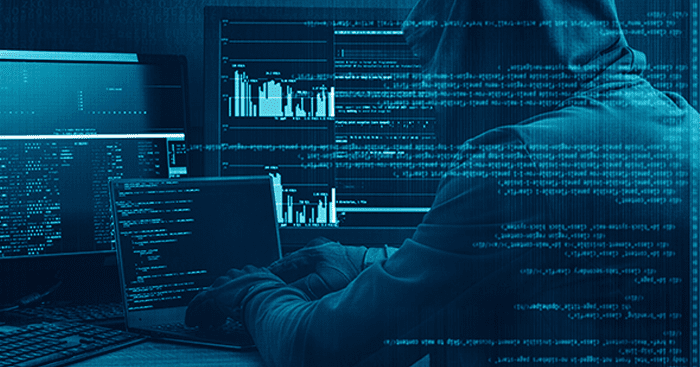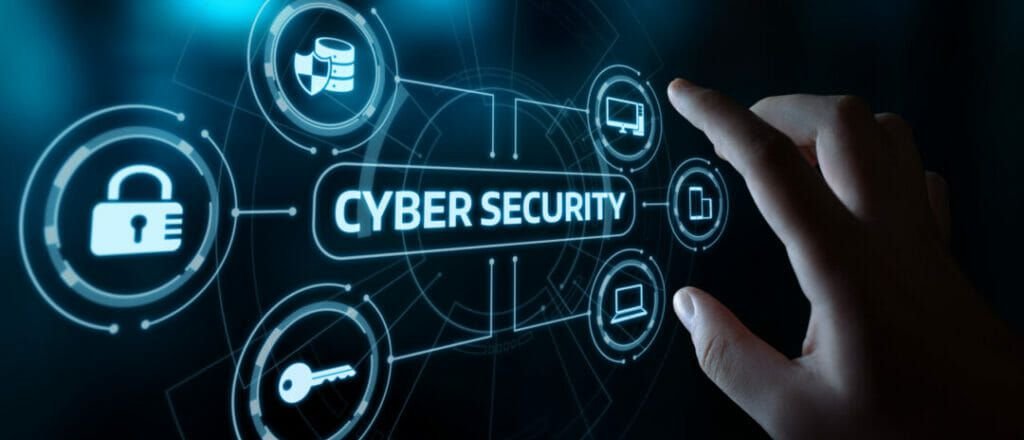In today’s digital landscape, cybersecurity has become a vital concern for individuals, organisations, and governments likewise. The ever-increasing sophistication of cyber attacks calls for a comprehensive understanding of the very various threats that survive. Two prominent threats that demand attention are Advanced Persistent Threats (APTs) and insider threats.
This article aims to delve into the world of APTs and insider threats, exploring their nature, impact, and the measures that can be taken to mitigate them effectively. In the ever-evolving landscape of cyber threats, Advanced Persistent Threats and insider threats emerged as major concerns for organisations worldwide. APTs are sophisticated and targeted attacks orchestrated by skilled adversaries. Meanwhile, insider threats refer to internal individuals exploiting their privileged access to compromise the security of an organisation’s cyberspace or data.

Understanding these threats is important in developing effective strategies to safeguard sensitive information and critical systems. Additionally, we will also touch upon the role of ethical hacking in combating these threats.
Understanding Advanced Persistent Threats
Definition and Characteristics
APTs are stealthy, long-term cyber attacks conducted by skilled hackers who target specific organisations or individuals. These attacks affect a persistent front within the victim’s web, enabling threat actors to access, gather sensitive information, and execute their objectives covertly.
Targeted Approach
APTs are not random or opportunistic, they are carefully planned and executed. Threat actors conduct thorough reconnaissance to identify vulnerabilities and craft sophisticated attack strategies tailored to their targets. Social engineering techniques, spear-phishing emails, and zero-day exploits are commonly employed to gain initial access.
Persistence and Stealth
APTs aim to remain undetected for prolonged periods, establishing a foothold within the compromised environment. Adversaries employ various evasion techniques, such as utilising encrypted communication channels, disguising their activities as legitimate traffic, and employing advanced malware that can bypass traditional security controls.
Unmasking Insider Threats
Definition and Types
Insider threats involve individuals who have authorised access to an organisation’s systems and exploit this access to cause harm. These individuals can be current or former employees, contractors, or partners. insider threats are classified into three main types: malicious insiders, negligent insiders, and compromised insiders.
Motivations and Insider Attack Vectors
Insider threats can arise due to various motivations, including financial gain, revenge, ideology, or coercion. Attack vectors employed by insiders include unauthorised data access, data exfiltration, sabotage, or facilitating external attacks by providing insider knowledge and credentials.
Recognising Insider Threat Indicators
Recognising potential indicators of insider threats is crucial in mitigating risks. Unusual network activity, excessive data access, changes in behaviour or work patterns, disgruntlement, or financial troubles can be warning signs. Implementing monitoring systems and maintaining open lines of communication can aid in detecting insider activities.
The Implications of APTs and Insider Threats
Data Breaches and Intellectual Property Theft
Both APTs and insider threats can result in significant data breaches and intellectual property theft. Valuable information, trade secrets, customer data, or sensitive government data can be compromised, leading to financial losses, reputational damage, and legal implications.
Financial Losses and Reputational Damage
The financial impact of APTs and insider threats can be substantial. Organisations may face financial losses due to data breaches, theft of funds, business disruption, or the costs associated with incident response and recovery. Moreover, the resulting reputational damage can erode customer trust and loyalty.
Legal and Compliance Consequences
APTs and insider threats can expose organisations to legal and compliance repercussions. Violations of data protection regulations, privacy laws, industry standards, or contractual obligations can lead to severe penalties, lawsuits, and long-term damage to an organisation’s standing.
Preventive Measures Against APTs and Insider Threats
Comprehensive Security Policies and Procedures
Organisations should establish and enforce robust security policies and procedures. This includes implementing strong access controls, regular security assessments, vulnerability management, patch management, and secure configuration practices.
Employee Education and Awareness Programs
Educating employees about cybersecurity best practices and the risks associated with APTs and insider threats is essential. Training programs should cover topics like phishing awareness, social engineering, password hygiene, and the importance of reporting suspicious activities.
Access Controls and Privilege Management
Implementing the principle of ‘least privilege’ and employing strong access controls can limit the potential damage caused by both APTs and insider threats. Regularly review and revoke unnecessary privileges, implement multi-factor authentication, and monitor privileged user activities closely.
Ongoing Monitoring and Threat Intelligence
Continuous monitoring of network and system activities is crucial for early detection of APTs and insider threats. Employing security information and event management (SIEM) systems, intrusion detection systems (IDS), and threat intelligence feeds can aid in identifying suspicious behaviour and indicators of compromise.
Responding to APTs and Insider Threats
Incident Response Planning
Developing an incident response plan is indispensable to minimise the impact of APTs and insider threats. This plan should scheme the steps to be taken in the event of a security incident, including roles and responsibilities, communication protocols, and the coordination of technical and effectual resources.
Forensics and Investigation
In the aftermath of an APT or insider threat incident, forensic analysis and investigation play a crucial role in understanding the scope, impact, and attribution of the attack. Organisations should have the capability to preserve evidence, conduct forensic examinations, and collaborate with law enforcement agencies if necessary.
Remediation and Recovery
Following an incident, organisations must take immediate action to remediate vulnerabilities and recover affected systems. This may involve patching systems, removing malware, reconfiguring access controls, and implementing additional security measures to prevent similar incidents in the future.
Collaborative Efforts and Cybersecurity Solutions
Cybersecurity Information Sharing
Sharing threat intelligence and collaborating with industry peers, government agencies, and security communities can enhance the collective defence against APTs and insider threats. Participating in information-sharing platforms, such as Computer Emergency Response Teams (CERTs), can provide valuable insights and early warnings.
Managed Detection and Response (MDR) Services
Organisations can leverage Managed Detection and Response (MDR) services to enhance their security posture. MDR combines advanced threat detection technologies with skilled security analysts who monitor and respond to potential threats 24/7, providing real-time alerts and incident response support.
Endpoint Protection Solutions
Endpoint protection solutions, such as next-generation antivirus (NGAV) and endpoint detection and response (EDR) tools, can play a crucial role in detecting and preventing APTs and insider threats. These solutions employ advanced behavioural analysis, machine learning algorithms, and real-time monitoring to identify suspicious activities and stop threats in their tracks.
The Future of APTs and Insider Threats
Emerging Technologies and Countermeasures
As APTs and insider threats continue to evolve, organisations must embrace emerging technologies and countermeasures. These may include artificial intelligence (AI) and machine learning (ML) for advanced threat detection, blockchain for secure data sharing, and deception technologies to misdirect and confuse attackers.
Continuous Adaptation and Vigilance
The fight against APTs and insider threats is an ongoing battle. Organisations must remain agile and continuously adapt their security strategies to counter new attack vectors and techniques. Vigilance, proactive monitoring, and regular security assessments are key to staying one step ahead of cyber adversaries.
Conclusion
In an increasingly interrelated reality, the threats posed by Advanced Persistent Threats (APTs) and insider threats cannot be ignored. Organisations must adopt a holistic near to cybersecurity, and combine robust preventivemeasures, incident response planning, and collaborative efforts. By discerning the nature of these threats and implementing appropriate security measures, organisations can safeguard their valuable assets and maintain a really strong defense against cyber adversaries.
If you’re interested in pursuing a career in ethical hacking and cybersecurity, consider enrolling in Imarticus Learning’s Postgraduate Program In Cybersecurity, a comprehensive cybersecurity course. Gain the skills and knowledge needed to succeed in this exciting field. Visit Imarticus Learning to learn more.
Visit Imarticus Learning to learn more.






